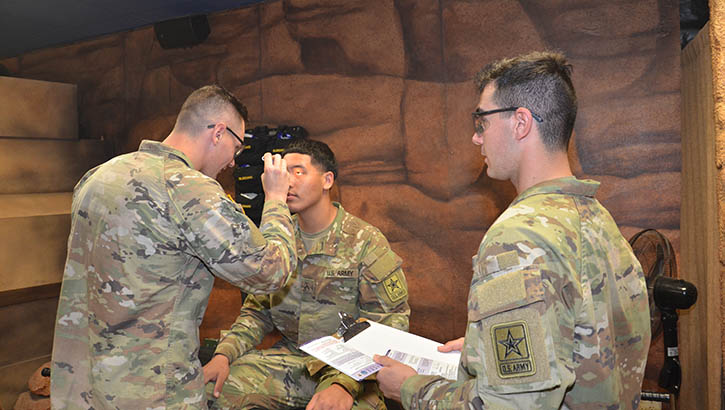Medical research and clinical trials conducted on military bases are critical for advancing treatments for both service members and civilians. However, participation in these trials isn’t without risk. When something goes wrong — whether due to negligence, improper oversight, or faulty consent procedures — the results can be devastating.
If you or a loved one was harmed during a military medical trial, it’s essential to understand your rights, the legal protections available, and the steps to take. At Khawam Ripka LLP, we specialize in military medical malpractice and advocate for service members, dependents, and veterans who’ve been injured during military healthcare procedures — including experimental trials.
Are Medical Trials on Military Bases Common?
Yes. The Department of Defense (DoD) frequently conducts or sponsors clinical trials and experimental treatments, especially in areas such as:
- Traumatic brain injury (TBI) treatment
- PTSD and mental health care
- Burn recovery and surgery
- Infectious disease vaccines
- Prosthetics and orthopedic technology
- Battlefield wound management
While many of these trials are crucial for innovation, they come with ethical and legal obligations — especially when human subjects are involved.
What Types of Harm Can Occur in Military Clinical Trials?
Injuries and complications can result from:
- Undisclosed side effects or risks not communicated during the consent process
- Improper dosing or unapproved use of investigational drugs or devices
- Failure to monitor participants for adverse reactions
- Use of untested procedures without thorough review
- Negligence in emergency response during a trial-related injury
In some cases, injuries are expected and covered in the informed consent document. However, when injuries result from negligence, lack of informed consent, or violation of research protocols, they may be legally actionable.
Who Oversees Medical Trials on Military Bases?
All human trials within the U.S. military must adhere to:
- Department of Defense (DoD) regulations
- Institutional Review Boards (IRBs) for ethical oversight
- Federal regulations (45 CFR 46) — also known as the Common Rule
- FDA guidelines (if the trial involves drugs or devices)
These regulatory bodies are tasked with ensuring participants’ safety and informed consent. When oversight fails, injuries can occur.
What Legal Options Are Available?
Your legal recourse will depend on your status and how the injury occurred:
✅ Military Dependents, Retirees, or Civilians:
If you were harmed during a trial on a base or sponsored by the military, you may be eligible to file a Federal Tort Claims Act (FTCA) lawsuit.
✅ Veterans Receiving VA-Sponsored Trial Treatment:
You may also pursue an FTCA claim or VA compensation claim.
⚠️ Active-Duty Service Members:
Generally restricted by the Feres Doctrine, which bars lawsuits against the federal government for injuries incident to service. However, you may be eligible for an administrative claim if the injury occurred in a context unrelated to combat or operational duties — such as in a non-combat clinical setting.
Important: Participation must have been voluntary and based on fully informed consent. If you were misled or uninformed, this could strengthen your claim.
What Makes Clinical Trial Injuries Unique Legally?
Unlike routine malpractice, trial injuries often involve:
- Experimental treatments not yet proven safe or effective
- Lengthy consent forms that may not clearly explain the risks
- Layered responsibility, as military, private contractors, and universities may all be involved
- Ethical violations, such as coercion or improper enrollment
That’s why these cases require legal teams with experience in both medical negligence and military law.
Steps to Take If You’re Injured During a Military Medical Trial
1. Seek Immediate Medical Help
Prioritize your health. Be sure to request evaluation from a non-affiliated provider if possible to ensure objective documentation.
2. Obtain a Copy of the Informed Consent Document
This document outlines the trial’s risks, benefits, and procedures. If the risks were not clearly stated or you didn’t fully consent, that may be grounds for legal action.
3. Request All Medical Records Related to the Trial
Include lab results, prescriptions, monitoring logs, and trial documentation.
4. File a Standard Form 95 (SF-95)
If pursuing an FTCA claim, this form starts the legal process and must be filed within two years of the injury.
5. Consult a Military Medical Malpractice Attorney
Clinical trial injury cases are nuanced. A knowledgeable attorney can assess liability, determine if ethical protocols were breached, and help navigate both federal and military channels.
What Can Compensation Cover?
Depending on your case and claim type, compensation may include:
- Medical expenses (past and future)
- Loss of income or earning capacity
- Pain and suffering
- Permanent disability or disfigurement
- Loss of enjoyment of life
Note: FTCA claims do not allow punitive damages, but can still result in significant compensation when handled properly.
How Khawam Ripka LLP Can Help
Our firm focuses solely on military medical malpractice and injury cases. We know how to uncover negligence in military research settings and hold the responsible parties accountable — even when multiple layers of bureaucracy are involved.
We can help:
- Review your trial consent forms and procedures
- Secure medical and legal experts for analysis
- Navigate FTCA or administrative claim filing
- Ensure compliance with deadlines and government protocols
Our mission is to protect service members and their families — including those who volunteer for medical research with good intentions and are injured as a result.
Internal Links for Further Reading
- Legal Steps After Receiving Faulty Medical Advice in the Military
- How Military Medical Malpractice Differs from Civilian Medical Malpractice
- Understanding Military Medical Malpractice Under the Federal Tort Claims Act
Harmed During a Military Medical Trial? We Can Help.
Contact Khawam Ripka LLP today for a free, confidential consultation. We’ll review your case, explain your legal options, and help you pursue justice with strength and strategy.

 Call Now- Open 24/7
Call Now- Open 24/7





